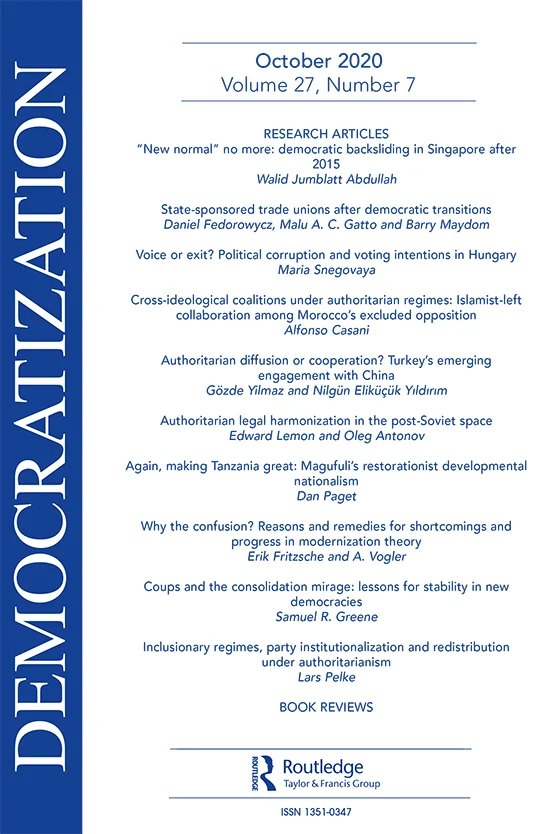Author: Samuel R. Greene
Affiliation: Shepherd University, Shepherdstown, VA USA
Organization/Publisher: Routledge
Date/Place: July 7, 2020/UK
Type of Literature: Article
Number of Pages: 22
Link: https://www.tandfonline.com/doi/pdf/10.1080/13510347.2020.1783529?needAccess=true
Keywords: Consolidation, Election, Institutions, Coups
Brief:
The article focuses on the illusions of democratic consolidation through minimalist and institutional approaches. The minimalistic understanding is that frequent elections are expected to provide sufficient stability to new democracies and protect it from reversal. But institutionalists view consolidation in a broader sense by considering institutional equity and quality as the accurate assessment. The author argues that the lack of institutional quality and equity can lead to poor governance and facilitate the armed forces to ruminate into extra-institutional solutions despite regular elections. Therefore, consolidation is expected to persist indefinitely only so long as the institutional order does – a breakdown in this order may mean that democracy is no longer the only game in town. The author compares Mali and Honduras with Ghana and Mongolia to check the institutional order and stability of political systems. Honduras and Mali fall in the category of minimalist standards by passing two-turnover tests and successful transfer of power, but with no real institutional change which led the countries to authoritarian regimes. Ghana and Mongolia have similar profiles to Honduras and Mali but survived political crises without extra-institutional measures. The countries share similar electoral histories, having held three and five successful presidential elections, having moderate economy, and infrastructure and literacy ratio. The author concludes that the study of recent coups in Mali and Honduras, in contrast to the continuity of democracy in Ghana and Mongolia, shows that the persistence of institutional weaknesses and a lack of clear commitment by key actors to democratic governance led to the breakdown of democracy despite the persistence of elections.
By: Razia Wadood, CIGA Senior Research Associate




